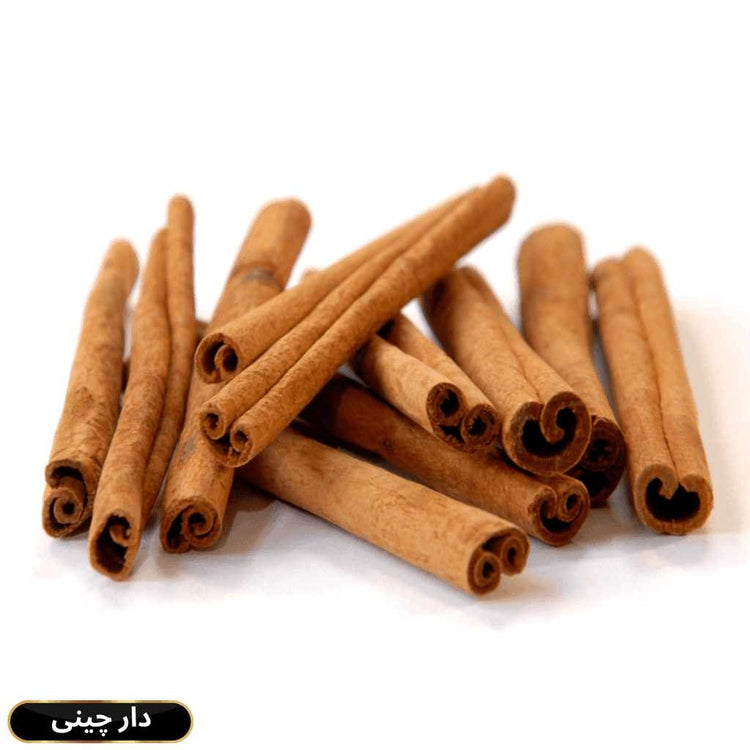
Spice Up Your Life with Cinnamon: The Superior Choice 100gm Packs
Availability: In Stock
SKU:
AR-000269








The price of cinnamon in Pakistan can vary depending on several factors, such as the quality, type, and season. Generally, prices tend to be higher during the harvesting season, which typically runs from October to February. According to reports, the wholesale price of cinnamon in Pakistan in 2020 ranged from PKR 1,000 to PKR 2,000 per kilogram for Cassia cinnamon, while Ceylon cinnamon was priced at around PKR 3,000 to PKR 4,000 per kilogram.
The prices of cinnamon in Pakistan may also vary depending on the location and vendor. Additionally, the global market conditions and demand for cinnamon can also affect the prices in Pakistan, as the country exports a significant portion of its cinnamon production to other countries.
Pakistan's cinnamon industry has a significant impact on the global spice market, as the country is one of the major producers and exporters of cinnamon. The country exports cinnamon to various countries around the world, including the United States, Europe, and the Middle East.
The global demand for cinnamon is increasing due to its various health benefits and uses in food and beverage products. As a result, the cinnamon industry in Pakistan has the potential to grow and expand, which can provide new opportunities for farmers and exporters in the country.
In conclusion, the cinnamon industry in Pakistan plays an important role in the country's economy, as it is a significant source of income for farmers and exporters. Pakistan produces two main types of cinnamon, Cassia and Ceylon, with Cassia cinnamon being the more commonly produced type. The prices of cinnamon in Pakistan can vary depending on several factors, such as the quality, type, and season, and may be affected by global market conditions and demand. With the increasing global demand for cinnamon, Pakistan's cinnamon industry has the potential to grow and expand, providing new opportunities for farmers and exporters in the country.
Cinnamon is a spice that has been used for centuries in various cultures and cuisines around the world. It is derived from the inner bark of trees belonging to the Cinnamomum genus, which are native to parts of Asia, the Middle East, and the Caribbean. The spice has a warm, sweet, and slightly woody flavor and aroma, which makes it a popular ingredient in many sweet and savory dishes, as well as in perfumes, cosmetics, and traditional medicines.
Cinnamon has a long and fascinating history, dating back to ancient times. The spice was highly valued in ancient Egypt, where it was used in embalming rituals and as a flavoring for food and beverages. The Egyptians believed that cinnamon had healing properties and used it to treat a variety of ailments, including digestive disorders, menstrual problems, and respiratory infections.
In ancient Rome, cinnamon was a symbol of wealth and status. The spice was imported from India and other parts of Asia and was considered a luxury item that only the wealthy could afford. It was also used in the production of perfumes, cosmetics, and other luxury goods.
During the Middle Ages, cinnamon was one of the most valuable spices in Europe. It was used as a flavoring for food and drink, as well as a medicine to treat a variety of ailments. In addition, it was believed to have magical properties and was used in spells and rituals by witches and other practitioners of the occult.
Today, cinnamon is widely used in many cultures around the world. It is an essential ingredient in many traditional dishes, such as apple pie, cinnamon rolls, and chai tea. In addition, it is used in many modern cuisines, including Mexican, Indian, and Middle Eastern, where it adds a unique flavor and aroma to dishes.
There are several different types of cinnamon, each with its unique flavor and aroma profile. The most common types of cinnamon are Cassia cinnamon and Ceylon cinnamon.
Cassia cinnamon is the most widely used type of cinnamon and is commonly found in supermarkets and grocery stores. It is produced from the bark of the Cinnamomum cassia tree, which is native to China and other parts of East Asia. Cassia cinnamon has a strong, spicy flavor and aroma and is often used in baking and cooking.
Ceylon cinnamon, also known as true cinnamon, is a milder and sweeter variety of cinnamon. It is produced from the bark of the Cinnamomum verum tree, which is native to Sri Lanka and southern India. Ceylon cinnamon has a more delicate and complex flavor and aroma than Cassia cinnamon and is often used in desserts and drinks.
Cinnamon is a versatile spice that can be used in a wide variety of sweet and savory dishes. It is an essential ingredient in many baked goods, such as cinnamon rolls, apple pie, and coffee cake. It is also commonly used in oatmeal, yogurt, and smoothies.
In addition to its use in sweet dishes, cinnamon is also used in many savory dishes, such as curries, stews, and roasted meats. It adds a warm and slightly spicy flavor to these dishes, which helps to balance out other flavors and aromas.
Cinnamon is also a popular ingredient in many traditional beverages, such as chai tea, mulled wine, and hot apple cider. In these drinks, cinnamon adds a warming and comforting flavor and aroma that is perfect for cool weather.
Cinnamon has been used for centuries as a traditional medicine to treat a variety of ailments. Today, research has shown that cinnamon has several potential health benefits, including:
Anti-inflammatory properties: Cinnamon contains compounds that have anti-inflammatory properties, which can help reduce inflammation in the body. This is beneficial for a variety of conditions, including arthritis, asthma, and heart disease.
Antioxidant properties: Cinnamon is rich in antioxidants, which are compounds that can protect the body from damage caused by free radicals. This can help reduce the risk of chronic diseases, such as cancer, heart disease, and Alzheimer's disease.
Lowering cholesterol: Cinnamon has been shown to help lower levels of LDL cholesterol, also known as "bad" cholesterol, which can help reduce the risk of heart disease.
Antibacterial and antifungal properties: Cinnamon contains compounds that have antibacterial and antifungal properties, which can help prevent infections caused by bacteria and fungi.
Improving brain function: Cinnamon has been shown to improve brain function and memory, and may even help prevent neurodegenerative diseases, such as Alzheimer's disease.
Relieving menstrual cramps: Cinnamon has been used for centuries as a natural remedy for menstrual cramps. It contains compounds that can help reduce inflammation and relieve pain.
Cinnamon can be consumed in various forms, including as a spice in cooking, as a supplement, or as a tea. However, it is important to note that cinnamon can interact with certain medications, such as blood thinners, and may cause allergic reactions in some individuals. Therefore, it is recommended to speak with a healthcare provider before consuming cinnamon as a supplement or in large amounts.
Cinnamon has been used in traditional medicine for centuries to treat a variety of ailments. In Ayurvedic medicine, cinnamon is used to treat digestive disorders, respiratory infections, and menstrual problems. In traditional Chinese medicine, cinnamon is used to improve circulation and treat colds and flu.
Cinnamon has also been used in traditional medicine in many other cultures around the world. In Iran, cinnamon is used to treat diarrhea and stomach ulcers. In Egypt, cinnamon is used to treat respiratory infections and toothaches. In Nigeria, cinnamon is used to treat fever and malaria.
Cinnamon has been used in cosmetics and perfumes for centuries due to its pleasant aroma and antibacterial properties. In ancient Egypt, cinnamon was used in perfumes and cosmetics to mask unpleasant odors and prevent infections. Today, cinnamon is still used in many perfumes and cosmetics due to its warm and spicy aroma.
Cinnamon oil is also used in aromatherapy due to its calming and relaxing properties. It can be used in a diffuser or added to a bath to promote relaxation and reduce stress.
Cinnamon has been mentioned in literature and art throughout history. In the Bible, cinnamon is mentioned as one of the spices used to anoint the body of Jesus after his crucifixion. In Shakespeare's play, Macbeth, cinnamon is mentioned as a symbol of luxury and wealth. In the Thousand and One Nights, cinnamon is mentioned as a spice that is highly valued by merchants.
Cinnamon has also been depicted in art throughout history. In ancient Egyptian art, cinnamon was depicted as a symbol of wealth and status. In Renaissance art, cinnamon was often depicted in still life paintings, along with other luxurious items, such as gold and silver.
Cinnamon is a versatile spice that has been used for centuries in various cultures and cuisines around the world. It has a warm, sweet, and slightly woody flavor and aroma that makes it a popular ingredient in many sweet and savory dishes, as well as in perfumes, cosmetics, and traditional medicines.
Q: What makes Cinnamon superior to other cinnamon products on the market? A: At Cinnamon, we source only the highest quality cinnamon and carefully test each batch to ensure it meets our strict standards. Our cinnamon also boasts a rich, complex flavor and a range of health benefits.
Q: How can I incorporate Cinnamon into my cooking? A: Cinnamon is an incredibly versatile spice that can be used in both sweet and savory dishes. Try adding it to your oatmeal, coffee, or baked goods for a delicious flavor boost.
Q: What are the health benefits of cinnamon? A: Cinnamon has been shown to help regulate blood sugar levels, reduce inflammation, and boost brain function, among other benefits.
Q: Does Cinnamon come in different forms? A: Yes, Cinnamon is available in both ground and stick form, making it easy to use in a variety of dishes.